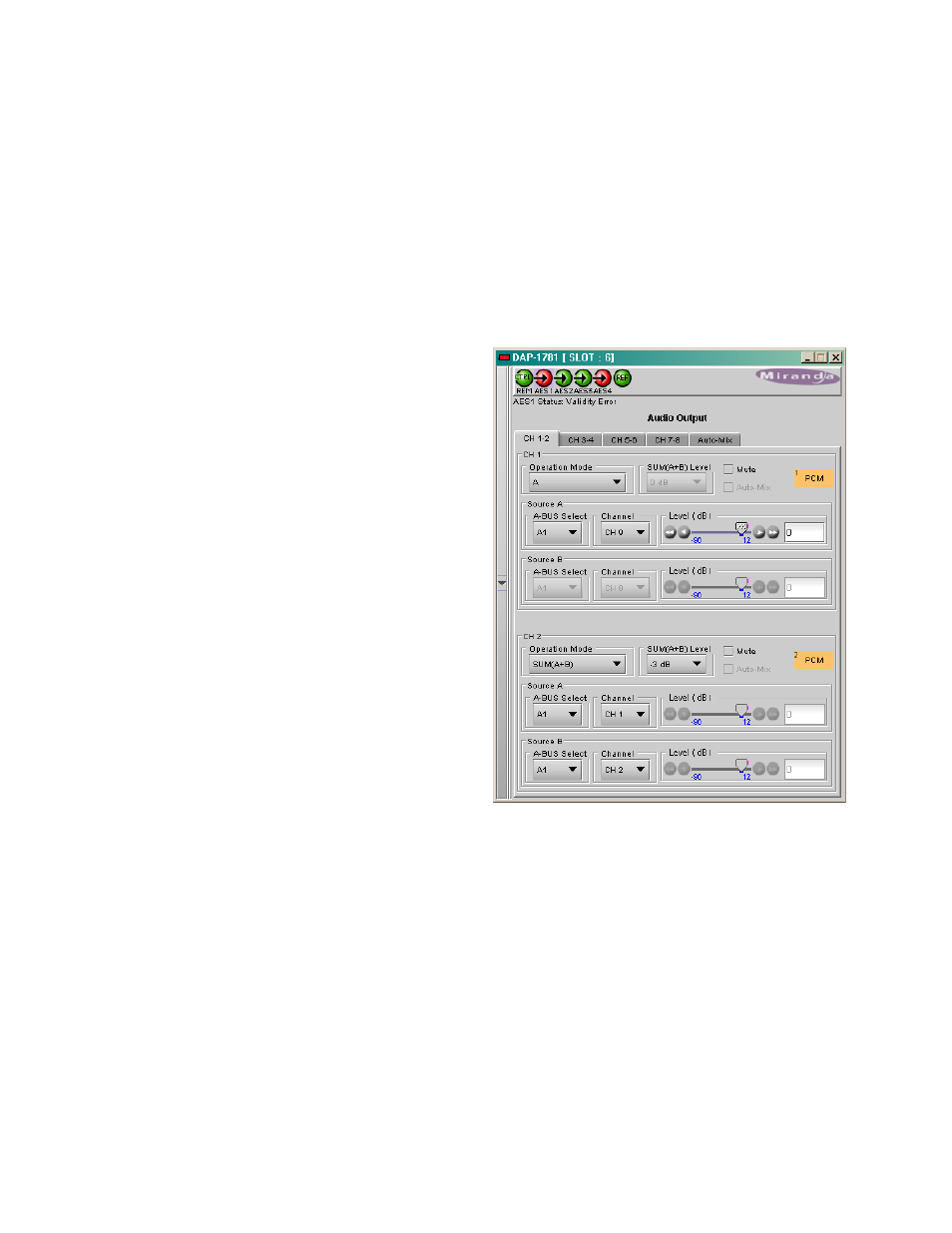2 audio output, 1 audio output - ch 1-2 to ch 7-8 tabs, Audio output – Grass Valley DAP-1781 User Manual
Page 29: Audio output - ch 1-2 to ch 7-8 tabs

GUIDE TO INSTALLATION AND OPERATION
DAP-1781 | 29
4.2 Audio Output
4.2.1 Audio Output - CH 1-2 to CH 7-8 tabs
Each of these tabs controls the output processing for two output channels – source selectors, level controls
and mixers for each output.
A colored box indicates the audio type for each output of the card.
• Detected audio types can be PCM, AC3 (Dolby Digital), Dolby-E or N-PCM (other non-PCM).
The Operation Mode pulldown establishes the configuration of the controls for an output channel. There are
four options:
A (see CH 1 in the figure on the right)
The source is selected using the Source A A-
BUS Select and Channel pulldowns, and its
level is adjusted using the slider or data box.
• The A-BUS select options are:
o
V
selects one of the 16 channels from
the video card.
o
A1 selects one of the 16 channels from
an audio card. A1 is always Local,
Slave 1 or Master
o
A2 selects one of the 16 channels from
an audio card. A2 is always Slave2
or Slave.
• The output Level is adjustable from -96 to
+12 dB with the slider or a direct keyboard
entry. This control is ignored for any signal
marked as non audio in the channel status.
SUM (A+B) (see CH 2 in the figure on the right)
Two sources are selected using the Source A
and Source B A-BUS Select and Channel
pulldowns. The two sources are added, and the
level of the combined signal is attenuated by
the amount selected in the Sum (A+B) LEVEL
pulldown.
• The A-BUS select options are:
o
V
selects one of the 16 channels from the video card.
o
A1 selects one of the 16 channels from an audio card. A1 is always Local, Slave 1 or Master
o
A2 selects one of the 16 channels from an audio card. A2 is always Slave2 or Slave.
• The Sum (A+B) Level pulldown offers attenuations of 0 dB, -3 dB and -6 dB.
NOTE: If you attempt to mix two different audio types to an output, only the Source A signal will be
routed to this output and the Source A audio type will be displayed. The Source B signal will be
ignored.